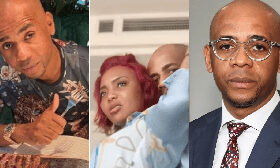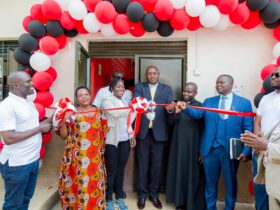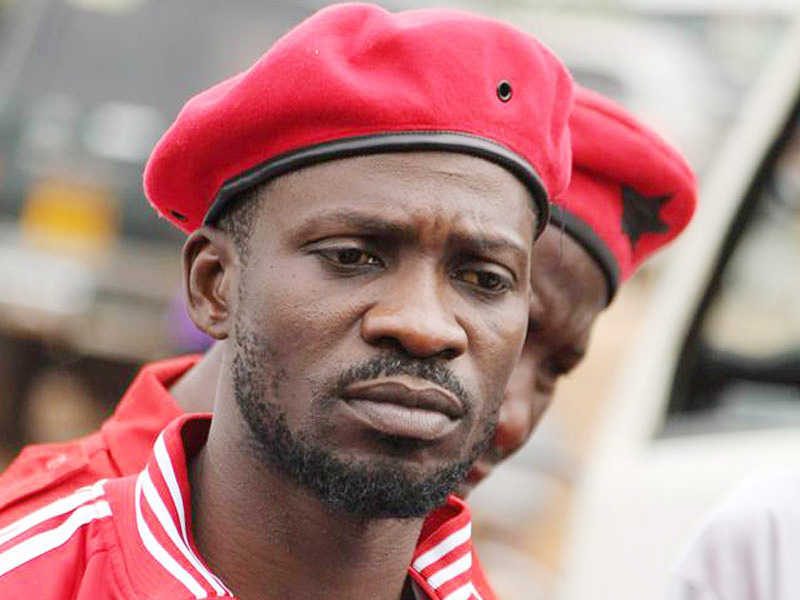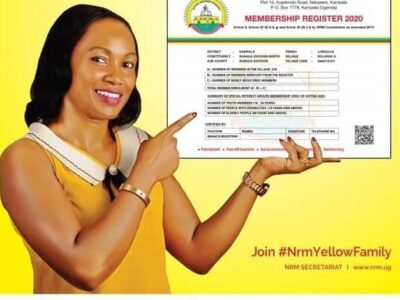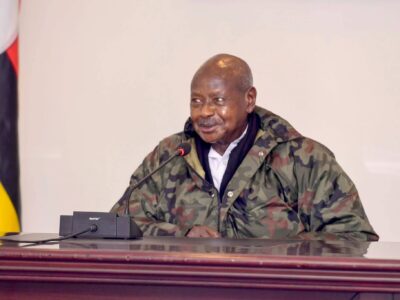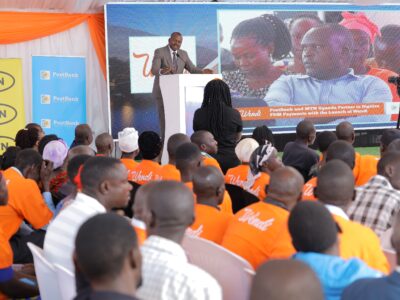All seems not to be well in Uganda’s youngest and largest opposition political party, National Unity Platform (NUP). Claims and counterclaims abound as those in the party leadership and the supporters are accusing the elected leaders of veering off the right path of pushing for change in the country.
The foot soldiers, a moniker given to NUP’s young and enthusiastic supporters who have kept at the side of Robert Kyagulanyi Ssentamu ever since he entered the political realm in 2017, are unhappy that the elected officials might just have used them to achieve their political ends. The elected leaders also have an axe to grind with the way the party is being [mis]managed.
In a dozen interviews conducted with leaders of the party and elected officials, each has a disagreement with the way the other is carrying out their responsibility. The elected officials, mainly have an issue with the way the finances of the party are managed and how the party appoints its leaders.
“Every month we contribute one million shillings as members of parliament, even the councillors at KCCA and other district leaders pay something. But what does that money do? How about the money the party has been getting from fundraisings? Our leaders must know that a political party is a public entity that must be run transparently,” said an MP who didn’t want to disclose his name so as to speak freely.
Another Kampala Capital City Authority (KCCA) councillor who also asked for anonymity to speak freely wondered how the party arrives at decisions to fill vacant party positions.
“How was Alex Waiswa Mufumbiro appointed deputy party spokesperson? He is not alone, there are other positions that the party leaders have filled without explanation. But there is one common denominator with these appointments; those appointed are all loyalists of the president,” the councillor said.
However, to be fair to Kyagulanyi, the party constitution, which is currently under review by the Medard Lubega Sseggona led committee, mandates the NUP president to make most appointments in the party. Away from the way the party is managed, some elected leaders also have issues with the supporters who keep hoovering around the party headquarters in Kamwokya as if elections are still ongoing.
“We have been accused of not going to the party headquarters, but those guys have made it impossible for us to go there. The moment you step there, they assume that all their financial problems are going to be solved. They ask for all kinds of favours from us, which we are also incapable of solving because we also have constituents who are equally demanding,” another MP told us.
This sentiment was echoed by four other MPs who equally asked for anonymity in order not to stir a backlash.
“It is these guys who are fuelling propaganda against us on social media that we have been bought. Unfortunately, it seems like the party leadership is condoning their behavior. Sometimes you are tempted to think maybe what we hear these hangers-on say is actually from the leaders,” another MP said.
This is the same feeling among some supporters of the leader of the opposition in parliament Mathias Mpuuga who was attacked by the party deputy spokesperson Waiswa Mufumbiro last month. Speaking at the memorial service of Frank Ssenteza, the NUP supporter who is said to have been run over by a military truck at the peak of the presidential campaigns in December of 2020, Mufumbiro accused the parliamentary leadership of sleeping on the job while the party is bleeding.
He mentioned the continued incarceration of party MPs; Muhammad Ssegirinya and Allan Ssewanyana but saying business seems to be normal in parliament. In his reaction, Mpuuga said he would not accept being schooled by ignorant people on how to lead the opposition in times of trial like now.
“Mufumbiro is very close to party leaders, would I be wrong to assume that they are speaking through him,” an MP wondered.
In the past, Kyagulanyi has also expressed dissatisfaction with the way some leaders in parliament have quickly forgotten the reason they were elected. Speaking at the press conference recently, Kyagulanyi said their idea of accepting parliamentary leadership on the side of the opposition even when they maintain that they won the 2021 general election was to use it as a front to expand the frontiers of the struggle for change.
“We didn’t send you to parliament for individual benefit,” Kyagulanyi said.
In fact, Kyagulanyi and many of his close confidantes have also expressed dissatisfaction with the way parliament is being run. At the retreat at Kyagulanyi’s Busabala beach last week, some MPs and party officials close to him said the diplomatic way with which Mpuuga is leading the opposition is not in line with the kind of leadership that their supporters envisaged.
“Mpuuga’s style of leadership is too gentle and that is not what we are as NUP; a party of young people envisaged. Even the people who inspire us like Julius Malema don’t handle every matter in a dialogue form. With the government we are dealing with today, we must be very aggressive because this is a government that doesn’t believe in dialogue or democracy,” an MP said.
He added that giving an alternative policy agenda that is perfectly written like Mpuuga’s legislative agenda launched last year, may sound nice and appealing to the elites but it has no effect on the majority of their supporters.
“You need to have people who can jump on the tables to stop the government from bringing a bad policy because that is what these people will listen to. Mpuuga must know that most of us were not elected because we were the best orators or because we were the wisest. We were elected because people thought that we had the guts to resist the government’s bad positions no matter what. Our people voted for fighters and we must live to that expectation. Unfortunately, we the fighters are denied space because they believe we might say things that the leadership doesn’t want us to say,” the MP added.
Makindye East MP, Derrick Nyeko who admits that Mpuuga has been a good leader thus far, equally admits that moving forward, there is a need to blend activism with dialogue.
“In a system where people are fed up with the government, they probably need a team of leaders who will aggressively articulate their issues from the normal way we know it. After knowing that neither the police nor the court can provide justice, probably the best way of confronting such a state is by standing firm and fight. I think the first approach of coming up with a legislative agenda to show the people that we know where we want to take the country was the best approach. Now that the people know that we can lead, I think the next stage is to take on the aggressive part to demand that this government delivers,” Nyeko added.
He, however, was quick to add that all the decisions that have so far been taken, were arrived at collectively. For Frank Kabuye, an MP representing Kassanda South, the current animosity between the leaders and some of the supporters is a manifestation of the expectation that people have in them.
“There are some things probably our voters would want us to do at a faster pace than we are moving. That’s why some believe we have not lived to their expectations. Our supporters in the ghettos don’t want to hear about things like order, procedure, information, which we do in parliament. What they want to see is their leaders throwing tables either in parliament or on the streets to show their displeasure with the actions of the government. But we are leaders we must balance between leading and doing politics,” Kabuye said.
His thinking is in sync with that of Joyce Bagala, the shadow minister in charge of communication. Speaking to URN, Bagala, said there is no rift between the shadow cabinet and the party leadership. She however was quick to add that in every society, people will always have divergent views.
“I want to say that there is a lack of knowledge on the part of some of our supporters on how parliament functions. People who don’t sit in parliament may want us to deal with certain things in a different way, but we also believe that we should handle them in another way and that is okay,” Bagala, the Woman MP for Mityana district said.
She however appealed to party leaders who might have any issue with the way the parliamentary leadership conducts itself to reach out to them other than publicly blasting them.
“We understand that Ugandans are desperate for change; it is not that they are unhappy with us and our leadership. That’s why sometimes our people make statements that are regrettable. But there is always the right forum to address any issues with fellow leaders,” Bagala said.
Efforts to speak to Waiswa Mufumbiro or Joel Ssenyonyi, the NUP spokespersons were futile as they didn’t pick nor return our calls to their known telephone numbers. It should be recalled that where NUP finds itself is where the Forum for Democratic Change, which led the opposition for 15 years until last year when it was dethroned by NUP was.
There were some party leaders and supporters who believed in confrontational politics while others believed in building party institutions as the best method of taking on President Museveni.
The ideological differences between the institutionalists and the activists eventually led to the splitting of the party in 2018 that led to the formation of the Alliance for National Transformation (ANT) led by the immediate former FDC president, Maj Gen. Mugisha Muntu.
For now, what is not clear is whether NUP will follow in the FDC’s footsteps all the way and eventually lead to a split of the party will learn a lesson and change the trajectory. Only time can tell.
*************
URN


